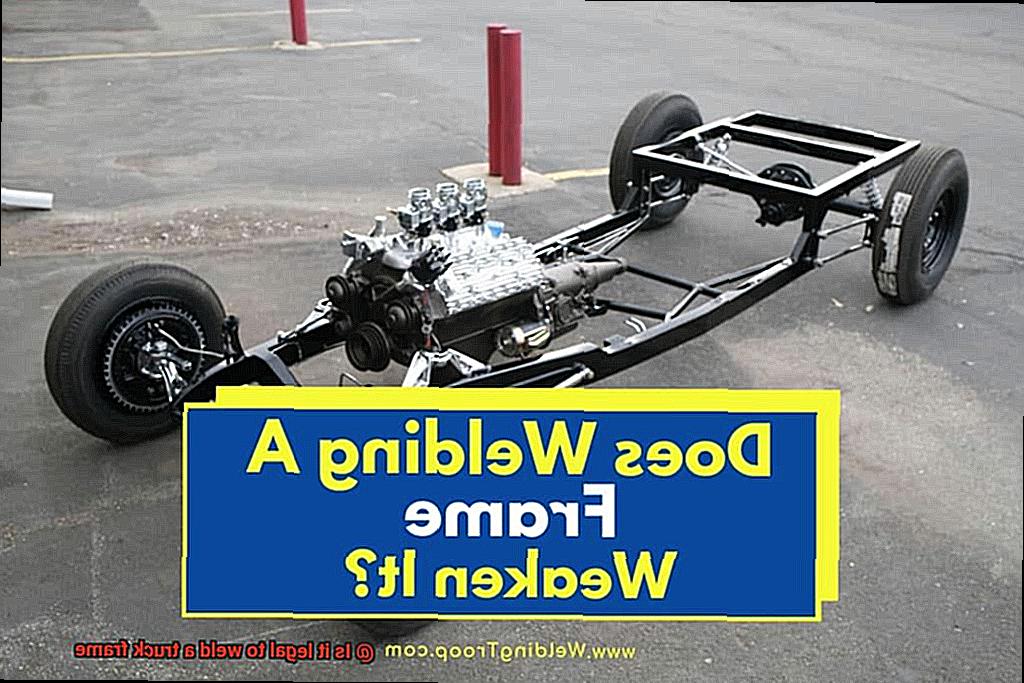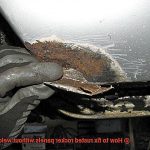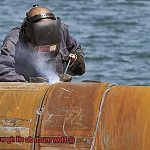Have you ever pondered about the legality of welding your truck frame?
It’s not a simple yes or no answer. There are a plethora of factors that come into play, depending on the state you reside in, the type of welding you plan to do, and what purpose your vehicle serves.
Each state in the US has its own set of rules and regulations when it comes to welding truck frames. While some states allow DIY enthusiasts to perform certain repairs, others demand licensed welders for any modifications.
Why such strict measures? Safety is paramount when it comes to welding a truck frame.
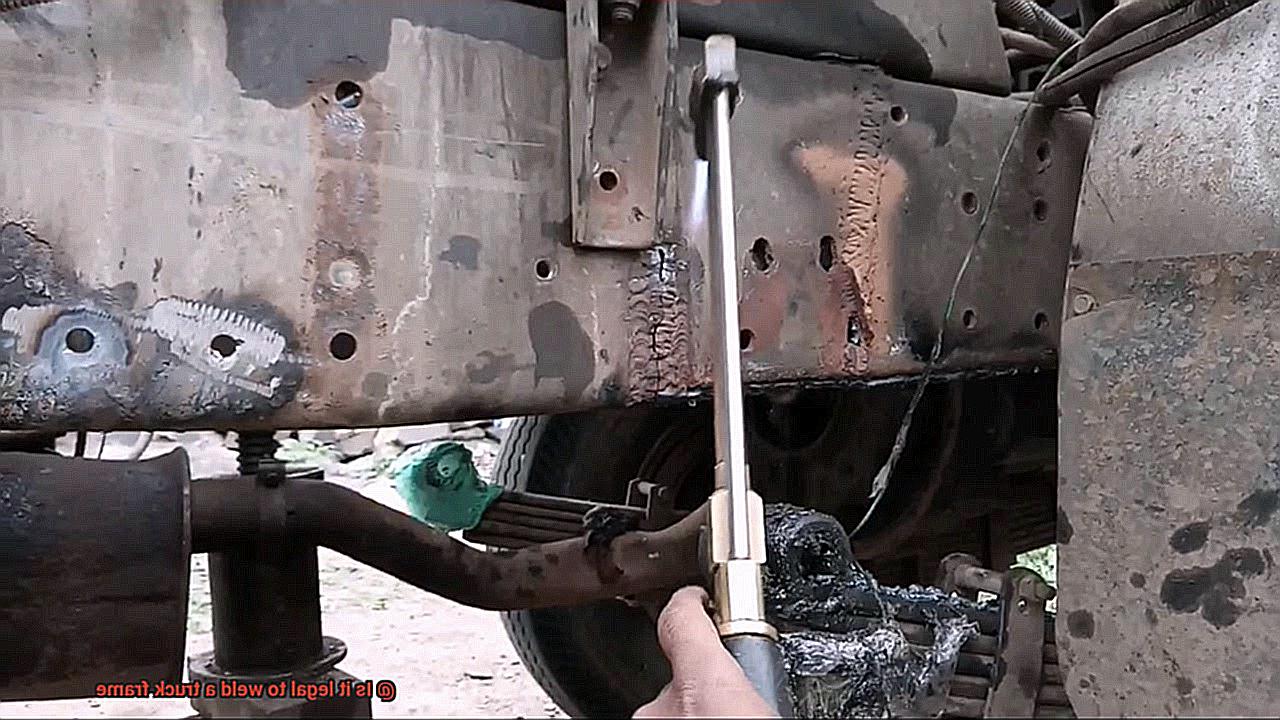
Any modifications made can impact the vehicle’s stability and jeopardize the driver and passengers’ safety if not done correctly. Moreover, whether or not you’re allowed to weld your truck frame depends on its intended use.
If it’s for commercial purposes, then compliance with DOT and other governing bodies’ strict regulations is mandatory. In summary, legalizing welding your truck frame involves various factors that require careful consideration.
This decision should not be taken lightly as it requires ensuring compliance with all applicable laws and regulations.
Legalities of Welding a Truck Frame
Contents
Welding a truck frame can be a daunting task, but with proper preparation and technique, it can be both safe and legal.
Firstly, it is crucial to research and follow specific guidelines set by each state’s department of transportation. Laws and regulations vary from state to state, and it’s essential to be aware of them before proceeding with any welding work.
For example, in New York, welding a truck frame is legal as long as the repair is done according to the manufacturer’s specifications and does not compromise the structural integrity of the frame or alter its strength or flexibility. While in Pennsylvania, vehicles must undergo a safety inspection before registration or transfer of ownership, and inspectors will check for any signs of frame damage or repair.
In addition to legal considerations, there are practical concerns when it comes to welding a truck frame. Improper preparation or technique can result in further damage or failure of the entire system.
To avoid this, it is crucial to ensure that any welding work on a truck frame is done correctly and by a professional welder who has experience working with frames. Using high-quality materials and following all safety protocols during the welding process will also help avoid any accidents or injuries.
One significant concern with welding a truck frame is whether or not it will weaken the structure. While welding can cause heat distortion and potentially weaken the metal, if done properly by a skilled and experienced welder, the strength of the frame should not be significantly compromised.
Remember to research and follow specific guidelines set by each state’s department of transportation before proceeding with any welding work on a truck frame.
Regulations and Guidelines in New York
It’s important to understand the state’s regulations and guidelines to ensure safety and compliance.
As an expert in this field, let me break down these guidelines into easy-to-understand terms. To start, any welding repairs or modifications must be performed by certified welders who are trained and experienced in welding techniques.
This guarantees that repairs are carried out with the utmost care and to a high standard. Additionally, the materials used for welding must meet specific standards, and the welding process must take place in a controlled environment to maintain quality and consistency.
It’s crucial to note that any modifications made to a truck frame must not alter its original design or weaken its structural integrity. This means that all welding repairs or modifications must be approved by a licensed mechanic or engineer before they’re allowed on the road.
This step is vital to ensure that the vehicle remains safe and roadworthy. In addition, New York state law requires all vehicles, including trucks, to undergo an annual safety inspection.
During this inspection, the truck’s frame is thoroughly examined for any signs of damage such as cracks, rust, or corrosion. If any damage is detected, the vehicle won’t pass inspection until it’s repaired or replaced.
To sum it up, welding a truck frame in New York is legal as long as it complies with state regulations and guidelines. It’s essential to have certified professionals perform welding repairs and modifications and have them approved by licensed mechanics or engineers.
Regulations and Guidelines in Pennsylvania
It’s essential to understand the regulations and guidelines set by the state’s Department of Transportation.
Firstly, any modifications made to a truck’s frame must comply with the state’s vehicle code. This means that any welding done on a truck’s frame must meet certain standards and specifications to be considered legal.
It’s like making a cake – following the recipe is critical to achieving a great end result. However, it’s not just about complying with the law; Pennsylvania also has strict requirements for vehicle inspections.
Modifying a truck’s frame can potentially weaken it, causing it to fail inspection. Ensuring your vehicle passes its check-up is crucial.
So, what steps can you take to ensure compliance with state regulations and guidelines? Firstly, consult with local authorities before making any modifications to your truck’s frame.
They can provide guidance on what standards need to be met and whether salvaged parts are allowed in the welding process. Secondly, seek professional assistance from certified welders who understand the state’s regulations and guidelines.
Just as you would trust a skilled surgeon to perform a complicated procedure on your body, trust a certified welder to repair your truck’s frame. In conclusion, welding your truck frame in Pennsylvania is not illegal, but it’s vital to follow regulations and guidelines to ensure compliance with state laws.
Consulting with local authorities and seeking professional assistance for any modifications made to your truck’s frame will ensure that your vehicle remains roadworthy and safe for years to come.
Is it Necessary to Have Repairs Approved by a Professional?
It’s like building a puzzle – every piece needs to fit perfectly to ensure that the vehicle remains safe and roadworthy for years to come.
That’s why it’s essential to have repairs approved by a professional when welding a truck frame. The structural integrity of a truck frame is critical for the safety of drivers and passengers on the road.
Welding can have a significant impact on this integrity, which is why it’s crucial to have repairs approved by a certified mechanic or welder. In fact, in some states, it may even be required by law to have repairs performed by licensed professionals.
But legal requirements aside, having a professional approve the repairs can also ensure that they are done correctly and safely. A certified mechanic or welder has the necessary skills and experience to evaluate the damage and determine the best course of action for repairing it.
They will also be able to ensure that the repairs are done according to industry standards and that any necessary safety measures are taken. Attempting to save money by welding a truck frame yourself may seem like a good idea, but it can lead to legal or safety issues down the road.
Without proper certification or training, you run the risk of making mistakes that could compromise the structural integrity of your vehicle or even endanger yourself and others on the road. So, don’t take any chances when it comes to welding your truck frame.
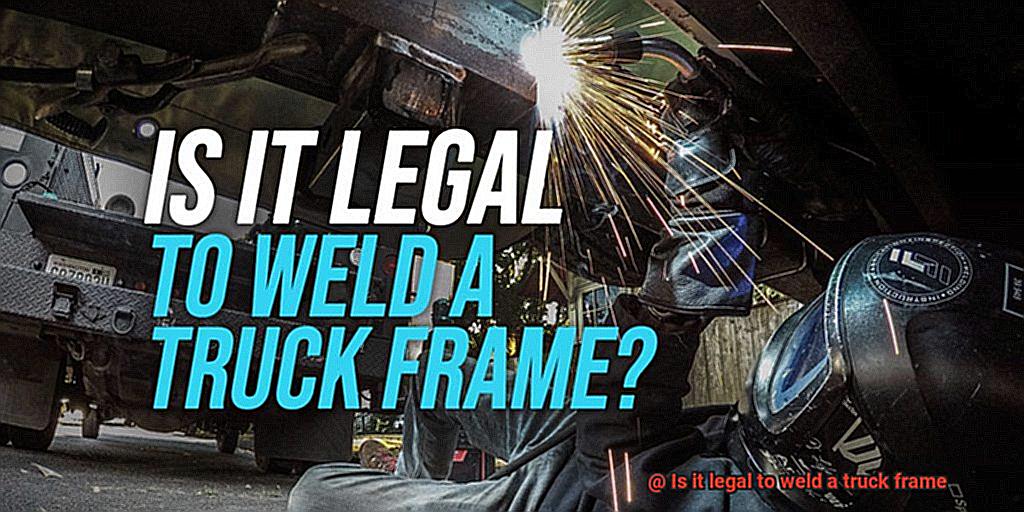
Remember, welding a truck frame is like building a puzzle – every piece needs to fit perfectly for the vehicle to function correctly.
Will Welding Weaken the Structure of the Truck Frame?
One of the most common concerns when it comes to welding a truck frame is whether it will weaken its structure. The answer is not simple, as it depends on several factors.
First and foremost, repairs must be approved by a certified mechanic or welder with the necessary skills and experience to evaluate the damage and determine the best course of action for repairing it. It’s crucial not to attempt to save money by welding it yourself, as it can lead to legal or safety issues down the road.
Now, let’s dive into the factors that need to be taken into consideration when welding a truck frame in order to determine whether it will weaken or strengthen the structure. The type of welding used is an important consideration.
Some types of welding, such as gas metal arc welding (GMAW) or flux-cored arc welding (FCAW), can create a stronger bond than others. Additionally, it’s essential to use the correct filler material for the specific type of steel used in the truck frame.
The skill and experience of the welder are crucial factors. Welding requires a high level of expertise and precision, especially when working with something as important as a truck frame.
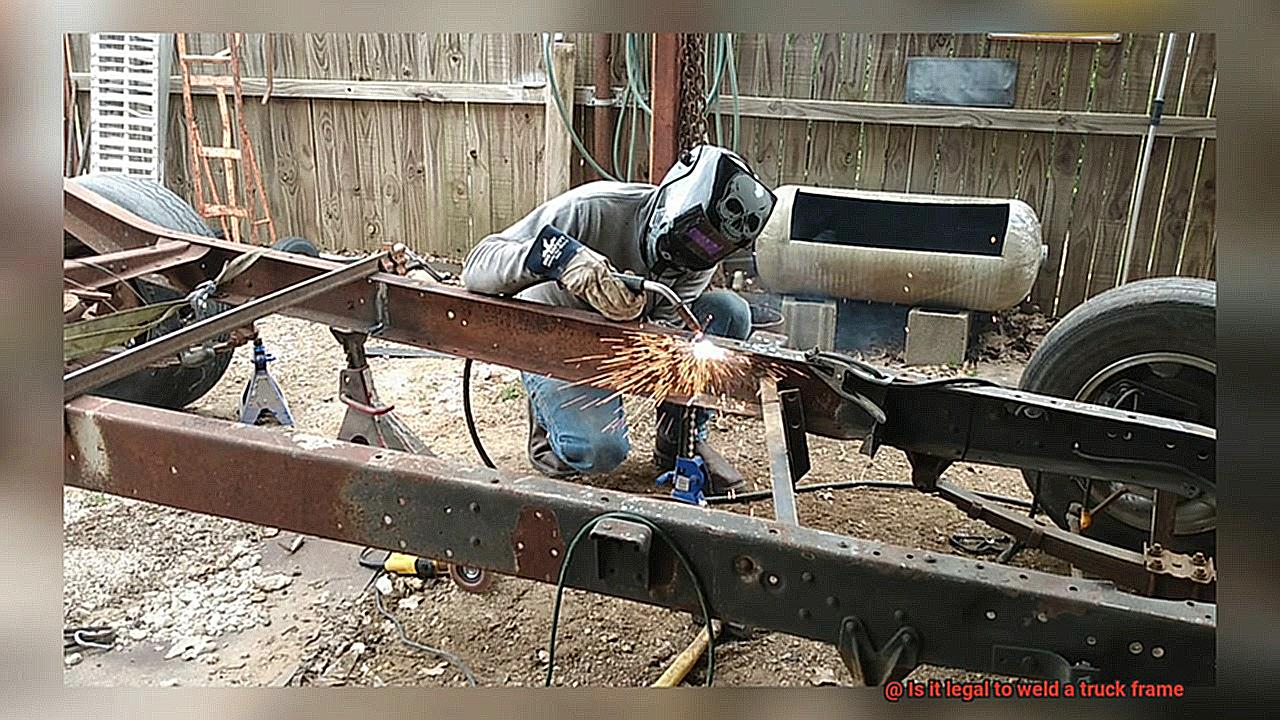
A skilled welder knows how to properly prepare the surface, adjust for any warping or distortion that may occur during welding, and ensure that the welds are strong and secure. Lastly, it’s important to consider the condition of the truck frame itself.
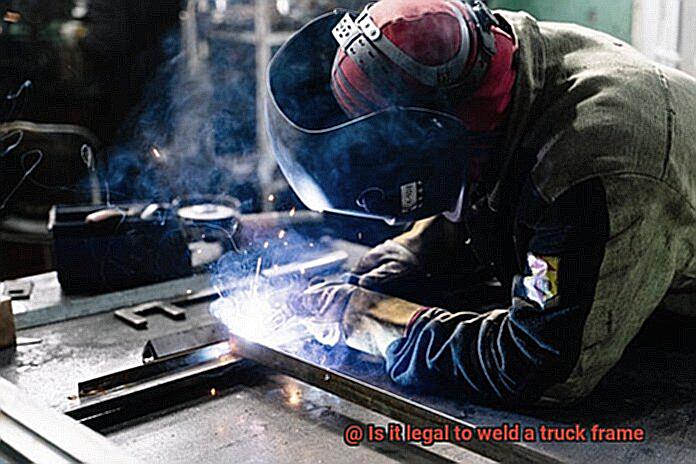
If there is significant rust or corrosion present, welding may not be a viable option as it could further weaken an already compromised structure. In these cases, replacing the damaged sections of the frame might be better than attempting to weld them.
However, always consult with a professional if you’re unsure whether welding is a viable option for your truck.
Tips for Safely Welding a Truck Frame
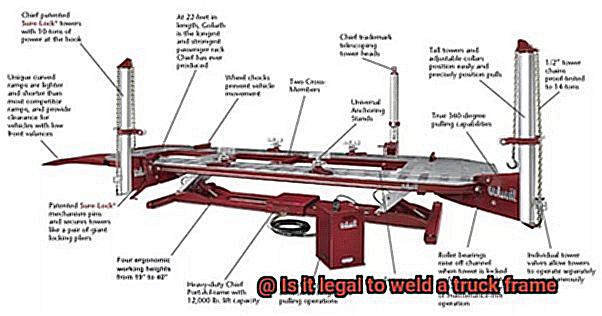
Welding a truck frame is no easy feat. It requires skill, patience, and most importantly, safety precautions. In this blog post, we’ll go over seven tips to help you weld your truck frame safely and effectively.
Gear Up with Proper Safety Equipment
First things first, make sure you gear up with the proper safety equipment. Your welding mask, gloves, and protective clothing will protect you from burns and eye damage. Without the right gear, welding can be dangerous. And don’t forget to wear clothing that covers your entire body.
Prepare the Work Area
Before starting to weld, prepare the work area properly. Clear the area of any flammable materials and ensure that there is adequate ventilation. You don’t want to be working in a space that’s too cramped or has poor air circulation.
Clean the Metal Surface
Make sure to clean the metal surface thoroughly before welding. Remove any rust, dirt, or oil from the surface that will be welded. A clean surface will ensure a strong bond between the metal pieces and prevent weak spots in the frame.
Use the Right Welding Technique
Different metals require different welding techniques. Be sure to use the correct welding technique for your specific job. Using the right technique will ensure a strong weld that will hold up under pressure.
Monitor the Temperature
Welding produces high levels of heat that can weaken the metal if it gets too hot. Monitor temperature levels closely and allow time for the metal to cool before continuing. Overheating can lead to weak welds and potential structural problems down the line.
Check for Cracks or Defects
Before welding, inspect the frame for any cracks or defects that may weaken the structure. These areas will need extra attention during welding to ensure they are reinforced properly. It’s better to take the time to reinforce these areas now than to have to go back and fix them later.
Test Your Welds
After welding, test the strength of your welds to ensure they meet safety standards. This is an essential step in ensuring your truck frame remains structurally sound for years to come.
So, welding a truck frame requires careful attention to safety measures. By following these seven tips, you can confidently weld your truck frame with minimal risk of injury or damage.
Remember to research local laws and regulations regarding welding truck frames because they may vary by state and jurisdiction. Complying with all applicable rules and regulations is important to avoid any legal issues.
vXKGeiXAOWU” >
Conclusion
To sum it up, the question of whether it’s legal to weld a truck frame is not a straightforward one.
It hinges on several factors like your state of residence, the type of welding you intend to do, and the vehicle’s intended use. Safety is always paramount when dealing with welding a truck frame.
Any alterations made could impact the vehicle’s stability and endanger the driver and passengers if done incorrectly. Therefore, adhering to strict regulations set by DOT and other governing bodies is mandatory for commercial purposes.
It’s worth noting that each US state has its own specific guidelines regarding welding truck frames. It’s crucial to conduct thorough research and follow these guidelines before proceeding with any welding work.
Welding a truck frame requires skill, patience, and most importantly, safety measures.
